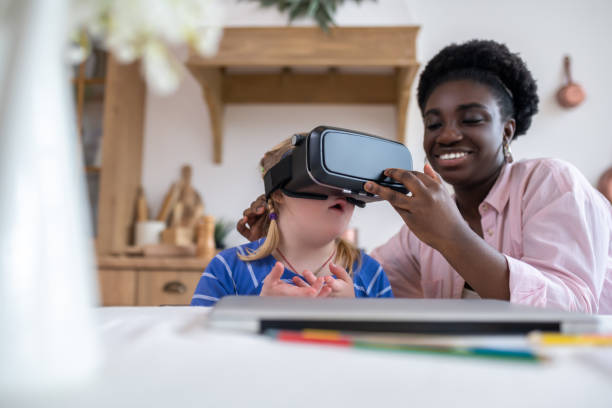
At World Forgotten Children Foundation (WFCF), our goal is to improve the quality of life for children with disabilities worldwide. We are proud to spotlight the innovative work being done by researchers at the University of Alabama at Birmingham (UAB), where they are utilizing extended reality (XR) technology to significantly enhance the mental and physical health of children with disabilities.
What is Extended Reality?
Extended Reality (XR) encompasses a range of immersive technologies, including Virtual Reality (VR), Augmented Reality (AR), and Mixed Reality (MR). These technologies merge the physical and virtual worlds, creating interactive environments that can be used for various applications, from gaming and entertainment to education and healthcare.
The UAB Initiative
Researchers at UAB have embarked on a pioneering project tointegrate XR into therapeutic and educational settings for children with disabilitiess. Their goal is to create engaging, immersive experiences that promote physical activity, cognitive development, and emotional well-being.
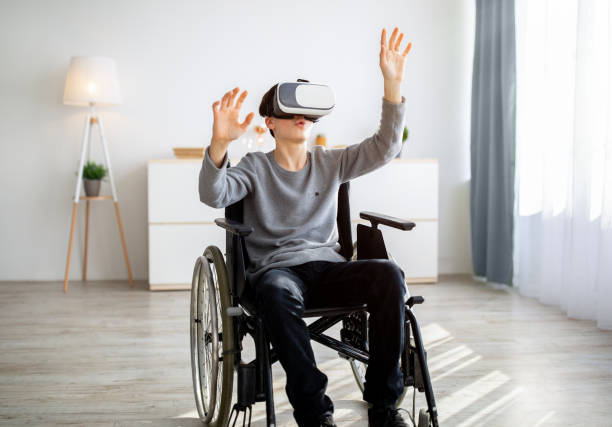
Mental Health Benefits
Children with disabilities often face unique mental health challenges, including higher rates of anxiety and depression. XR technology offers a novel approach to mental health therapy by providing immersive, controlled environments where children can engage in therapeutic activities.
For instance, VR environments can simulate social situations, helping children practice social skills in a safe, controlled setting. This can be particularly beneficial for children with autism spectrum disorder (ASD), who may struggle with social interactions. By repeatedly practicing these skills in a VR environment, children can build confidence and improve their social competencies.
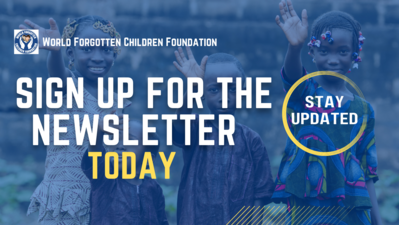
Physical Health Benefits
Physical therapy is a crucial component of healthcare for children with disabilities, but traditional methods can sometimes be repetitive and unengaging. XR technology has the potential to transform physical therapy by making it more interactive and enjoyable.
At UAB, researchers are developing XR applications that encourage physical activity through gamified experiences. These applications can motivate children to perform exercises by turning them into fun, engaging games. For example, children can perform movements and exercises in a VR game setting, which can help improve their motor skills and physical strength while keeping them entertained and engaged.
Case Study: Improving Mobility Through XR
A notable case study from UAB highlights the impact of XR on a child with cerebral palsy. Traditional therapy methods had limited success in improving the child's mobility. However, by incorporating VR-based exercises that mimic real-world activities, the child showed significant improvements in both mobility and motivation. The immersive nature of VR provided a stimulating environment that encouraged the child to participate actively in their therapy.
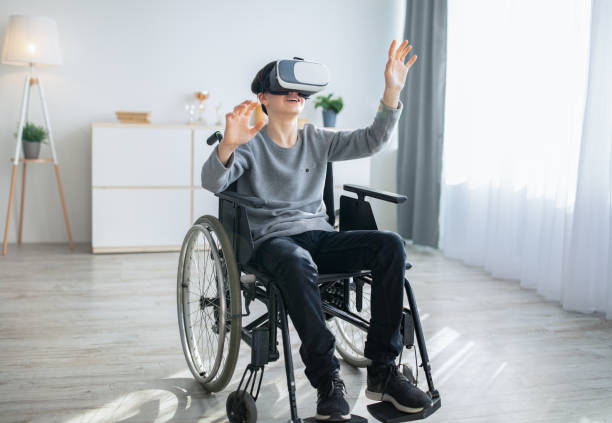
Broader Implications and Future Directions
The success of XR in improving the mental and physical health of children with disabilities at UAB points to broader implications for the healthcare and education sectors. XR technology can be adapted to various therapeutic and educational contexts, providing personalized and engaging experiences for children with a wide range of disabilities.
Moving forward, the researchers at UAB plan to expand their XR applications and conduct further studies to explore the long-term benefits of these technologies. Their work holds promise for revolutionizing the way we approach therapy and education for children with disabilities, offering them new opportunities for growth, development, and improved quality of life.
Final Thoughts
WFCF is inspired by the groundbreaking work being done at the University of Alabama at Birmingham. By harnessing the power of extended reality, researchers are creating a brighter future for children with disabilities, one that is filled with possibility, engagement, and hope. We look forward to seeing how these innovative technologies will continue to evolve and make a lasting impact on the lives of children worldwide.
Support WFCF
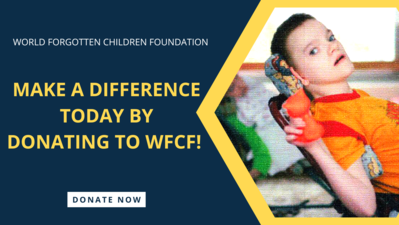
The mission of World Forgotten Children Foundation (WFCF) is to support projects that help orphaned children with disabilities in developing countries. Donate today to support underprivileged communities and orphaned children with disabilities in developing countries.


